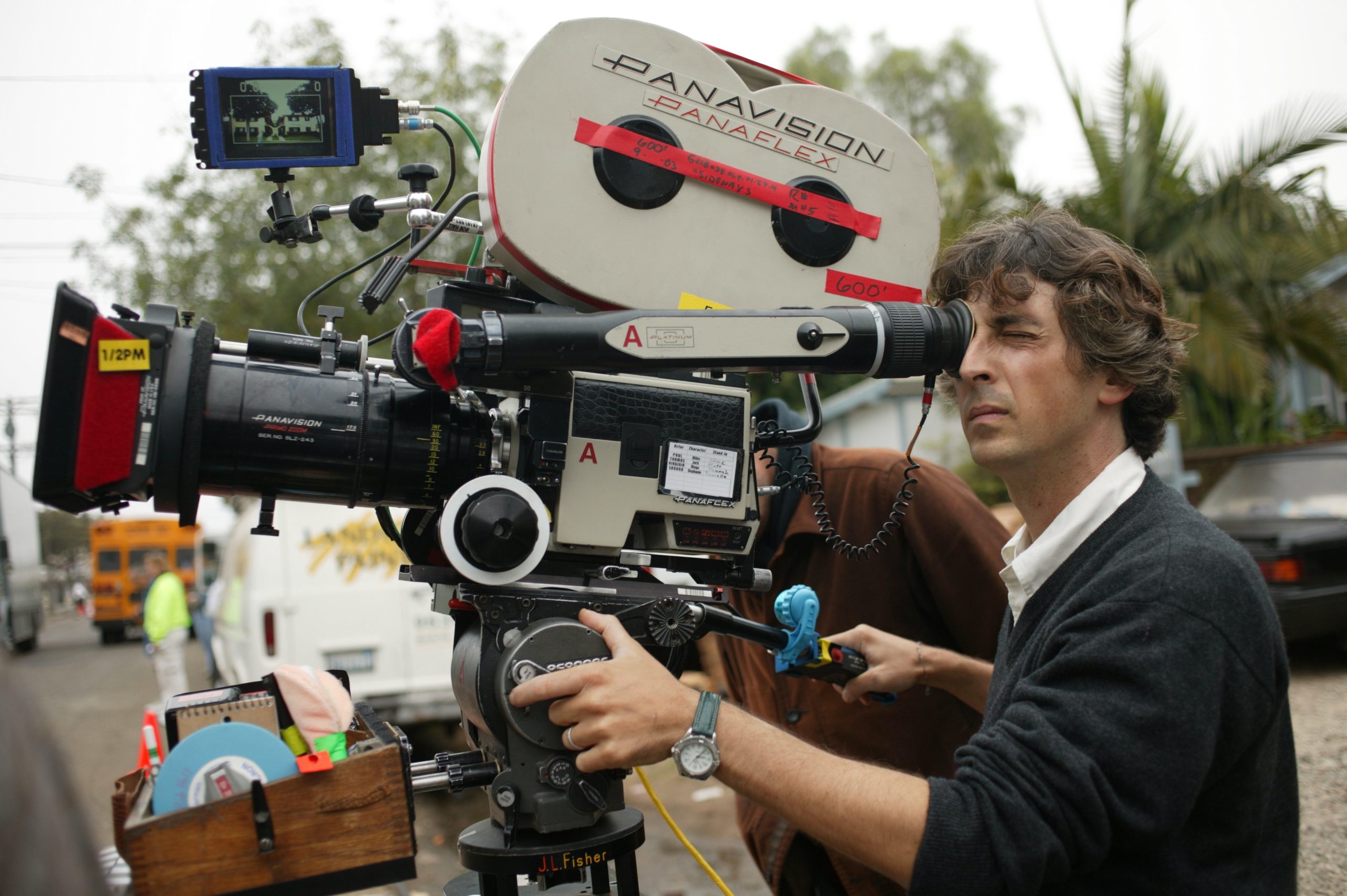Alexander Payne Reveals the Secrets to Writing a Good Screenplay
The Academy Award-winning filmmaker offers insight into his screenwriting process and what he looks for in a screenplay.
Filmmaker Alexander Payne takes a break from preparing, casting, and scouting his next film, “The Holdovers,” to talk to us about screenwriting and how to create a great script. “I’m still in the beginning stages of preparing ‘The Holdovers,’” says Payne. The movie, set over the holidays in 1970, is about a disliked prep school professor, played by “Sideways” star Paul Giamatti. “I’ve been spending the pandemic working on a few screenplays that I hope to shoot in quick succession. As with ‘The Holdovers,’ [which David Hemingson wrote], I’m not directly writing all these screenplays; I’m supervising others.”
Working as a team comes naturally to Payne. His friend and former roommate Jim Taylor co-wrote five of the seven features that he has directed: “Citizen Ruth” (1996), “Election” (1999), “About Schmidt” (2002), “Sideways” (2004), and “Downsizing” (2017). “Each one is different, but Jim and I always have the same specific process,” he says. “We’re fortunate to be writing partners. It’s as though we are two lobes of one brain.”
What is their process? “The basic rule of thumb is that a screenplay takes about six months, whether it’s an original or an adaptation,” he says. “And then, you keep tinkering with it even while shooting. Jim and I are always together in the same room when writing. First, we talk about what’s going to happen next, and then one of us will go to the computer and pound out two, three, or four pages and then invite the other one to join. At that point, we rewrite together; we typically have a Mac with one monitor with two keyboards.”
Self-Editing Is Essential
Payne’s movies have earned 19 Academy Award nominations. In addition, he has personally won two Best Adapted Screenplay Academy Awards for “Sideways” and “The Descendants.” Clearly, he understands how to take a story from script to the big screen, which is why we asked Payne to explain what it takes to pique his interest in someone else’s original screenplay, as in the case of “Nebraska.”
“It is nice when a screenplay is written concisely,” Payne says. “I find it laborious to read an overwritten screenplay, one that asks you to imagine too many details. When you read a screenplay, it should suggest the same flow that the film itself will eventually have.”
Downsize the Details
“When writing a screenplay, I think of many details in the moment of writing a particular scene, but then I ask myself, ‘Does the reader absolutely have to know that?’ If the answer is no, then I segregate those details into a separate file, which I want to remember later when directing. The reader doesn’t have to know that the house is yellow with a wooden front porch and Cape Cod siding. I imagine that and want to remember that, but the reader doesn’t have to know that detail. The flow of the screenplay is paramount, and every word should be weighed.” Payne explains.
Stay Under 120 Pages
“If I open a screenplay and I see that it is 98 pages, I think, ‘Great. This writer knows what he or she is doing.’ On the other hand, if a script is over 120 pages, the director thinks, ‘Oh God, I have to direct and edit with a gun to my head,'” Payne says. “The rule of thumb is a minute a page, so when a screenplay page count is over 120, I think, ‘Oh, I have to direct and edit this with a quick rhythm to have the entire story in there and keep it together. When a screenplay is shorter, the director is freer to allow scenes and moments to breathe.’ Of course, one may want a long movie, but I like to keep movies at or under two hours. But regardless of length, making a film is a constant search for the economy in all three phases – writing, directing, and editing. Too many movies today are just too darn long.”
Tell Real Stories
As for content, “I like when it’s a very human story,” Payne says. This is just my personal taste, but I like when the script suggests something that conceivably could happen in real life.” “What is beautiful about being a filmmaker is that our clay is actual human behavior,” he says. That longing for reality and groundedness explains why he has filmed five of his movies — “Citizen Ruth,” “Election,” “About Schmidt,” “Nebraska,” and “Downsizing” — at least, in part, where he was born and raised in Nebraska.
And he has no interest in gratuitous violence. “I grow disappointed when movie gimmicks, particularly unwarranted violence, are introduced,” Payne explains. “I don’t like when brutality is there for effect, or it’s trying to adhere to some expectation of an American narrative’s convention of violence. Again, that’s strictly my taste, but I like good human movies that are about people, and, as my mentor and friend, the Czech director Jiri Weiss, used to tell me, ‘the mysteries of the human heart.'”

